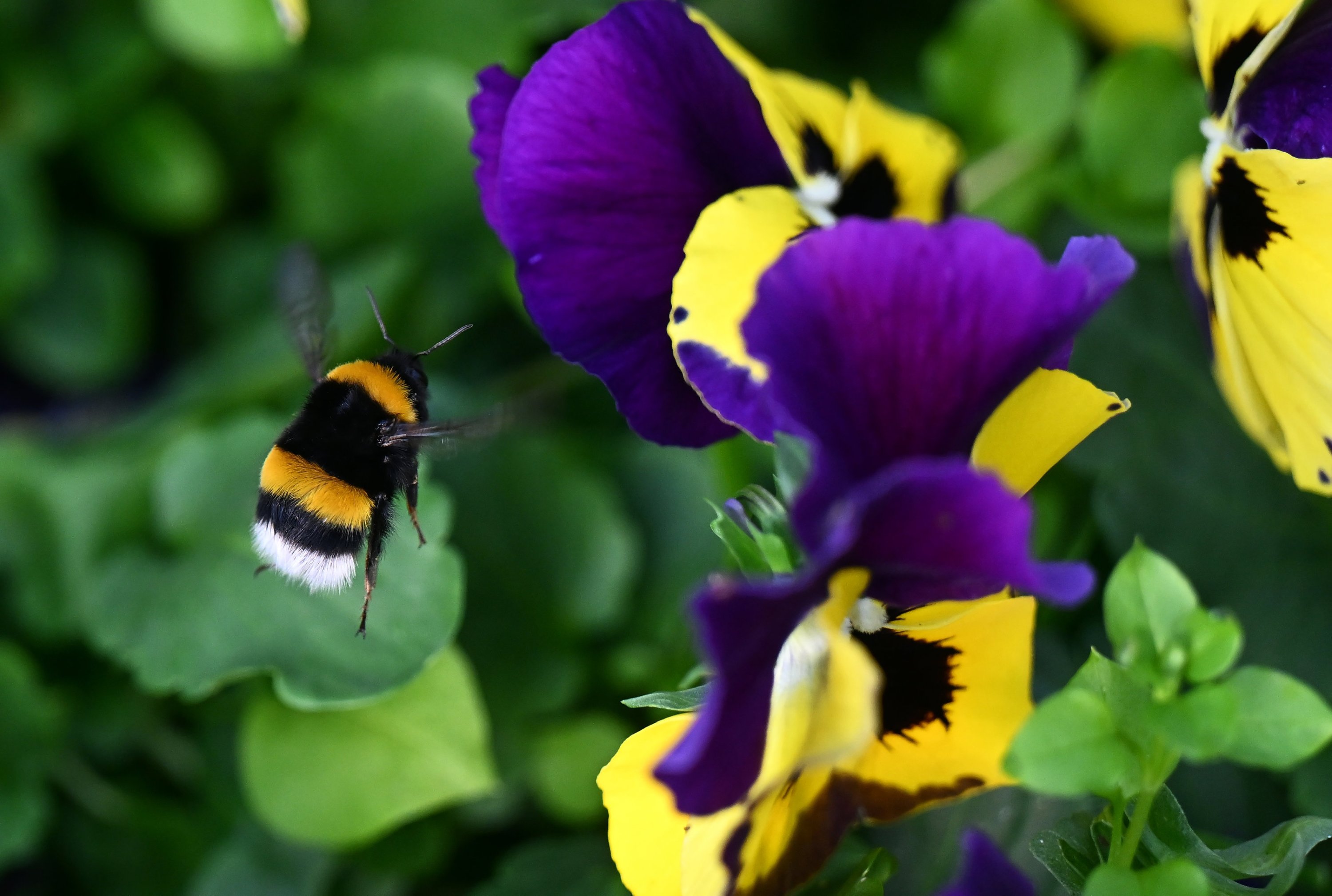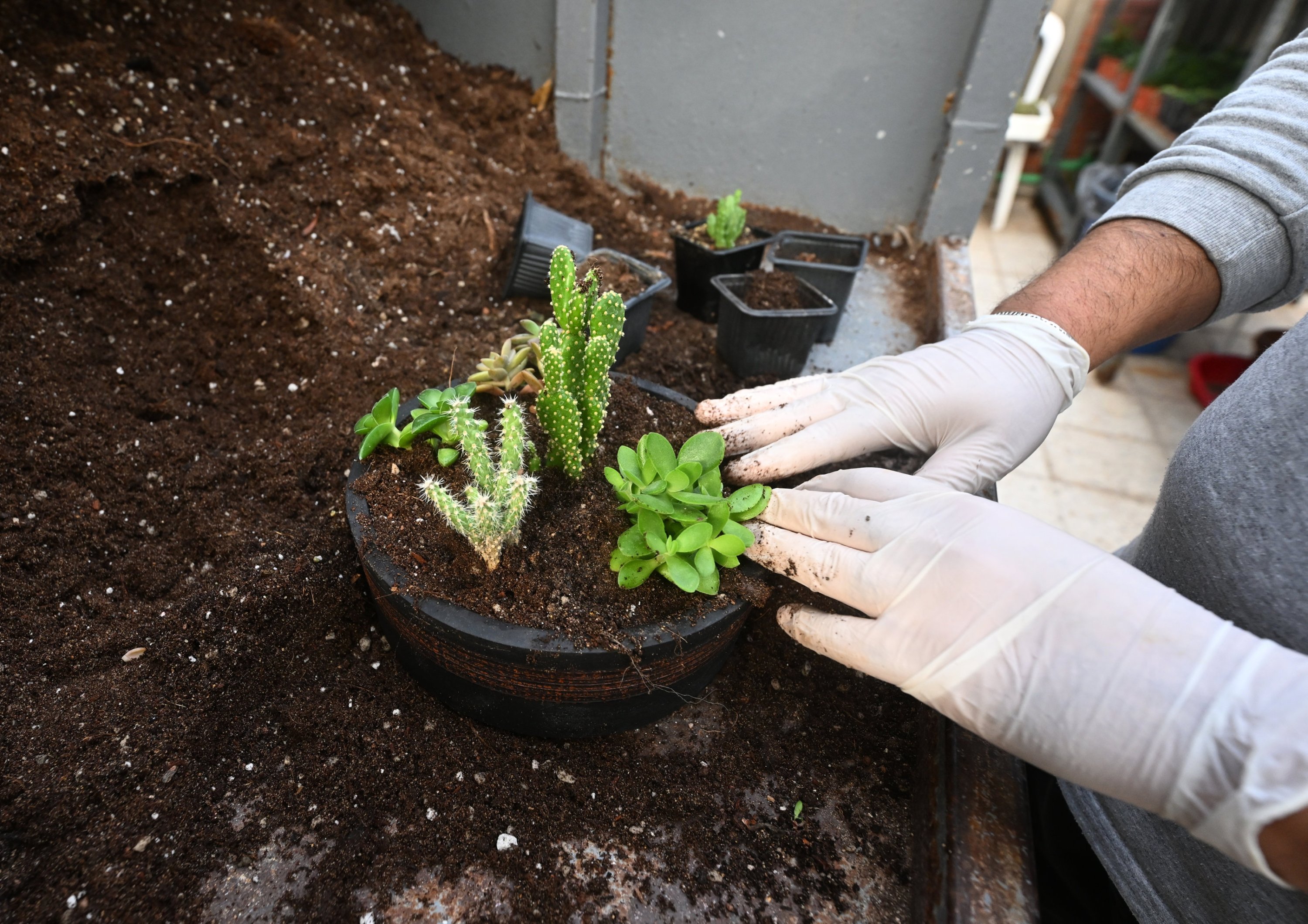© Turkuvaz Haberleşme ve Yayıncılık 2026
The lush greenhouses nestled within the expansive garden of the Turkish Parliament, boasting one of the world's most extensive green areas among Parliaments, serve as a vibrant hub producing an array of flowers and plants. Not only do these greenhouses cater to the needs of the Parliament, but their surplus yield is also available for sale.
Encompassing diverse flora and meticulously designed landscapes, the Turkish Parliament garden goes beyond its ornate appearance. It harbors a greenhouse that provides a conducive environment for cultivating plants that typically don't thrive in Ankara's climate.
The produce from these greenhouses plays a multifaceted role, adorning interior designs, particularly in landscaping endeavors and embellishing various activities hosted within the Parliament's campus.

Umit Küçük, an agricultural engineer within the Turkish Grand National Assembly Support Services Directorate's Park and Garden Services, shared insights on greenhouse productivity with Anadolu Agency (AA).
Küçük stated that approximately 3,300 square meters (35,520 square feet) of the area built on 16,000 square meters is enclosed, meaning the greenhouses and that flower production is carried out both in open and enclosed areas.
Stating that 2,000 saplings and shrubs and 6,000 permanent ground cover plants are produced annually and that these are generally produced in open areas, Küçük said: "We produce an average of 7,000 indoor plants annually. We also produce around 6,000 cacti and succulents."
"Among medicinal, aromatic plants, we grow rosemary, sage and thyme in Türkiye. Our biggest item is seasonal flowers. We produce 120,000 winter and 120,000 summer seasonal flowers a year," he explained.
Stating that flower cultivation is done twice a year, in summer and winter, Küçük said that violets and ornamental cabbages are mostly exhibited in the Parliament gardens during this season.
Küçük said they grow mostly geraniums, petunias, velvet and begonias in the summer. "The Turkish Grand National Assembly has a production that can be considered unique based on parliaments. Among the parliaments in the world, we have the largest cultivation area, and there is no Parliament with such a production facility."
Stating that cacti and succulents are also produced, Küçük said that there are more than a hundred species and subspecies of flowers in this group and that they benefit from flowers in this group, especially in terrariums, arrangements and many other areas.
Küçük stated that they also produce cut flowers and underlined that they produce lilies, carnations and freesias depending on the season and that the Parliament is one of the parliaments that can set an example in the world in this sense.
Stating that the plants used in offices, corridors and backstages can deteriorate over time, these plants come to us and we rehabilitate the ones we can and reuse them. We do not waste the ones we cannot save. And by cutting pieces of their leaves, we enable it to re-root," said Küçük.
Stating that the plants used have different characteristics, Küçük said: "There are arrangements that we call 'cocktails.' We use live cactus cocktails. You can see these mostly in offices, commission meeting rooms and coffee tables at all kinds of receptions organized by the Presidency. We also use the flowers by making arrangements in different sizes for meetings and receptions. We use them as bouquets on special days and meetings. There are almost no external purchases. We try to meet all the needs of Parliament from these plants. We also use the cacti we produce here in offices or places deemed appropriate."

The new-term MPs were surprised when they came to the greenhouse and asked: "Is there such a place in Parliament grounds?" Küçük stated that they sell the excess flowers and plants produced in the greenhouse to the staff as well at affordable prices. Küçük reported that TL 153,000 ($5,286) was generated from sales this year.
Explaining that 11 engineers, five technicians and 90 gardeners work within the Park and Garden Services, including 90 gardeners who are women.
Gizem Işık, who has been working in the greenhouse for about four years, said: "I love my job. It is really nice to be a part of such an important thing. It makes us very happy that our work is valued. Our team members also help us a lot. I love plants in general and even play music for them."
Stating that one of the most important issues in plant care is irrigation, Işık said that watering should be done as much as the plant needs, especially during winter.
